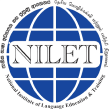Higher Diploma in Psychological Counselling
Duration
24 Months
Total Crtedits
90 Credits
Introduction to Psychology
Module Objective:
To become familiar with the theories concerning human behaviour in a social context.
Content
- Introducing psychology
- Psychological science
- Brains, bodies and behaviour
- Sensing and perceiving
- States of consciousness
- Growing and developing
- Learning
- Remembering and judging
- Intelligence and Language
- Emotions and motivations
- Personality
- Defining psychological disorders
- Treating psychological disorders
- Psychology in our social lives
Development Psychology
Module Objective:
To describe, explain, and optimize human development.
Content
- Physical development.
- Cognitive development.
- Psychological development.
Cognitive Psychology
Module Objective:
To study how humans acquire and put to use the acquired knowledge and information mentally just like a
computer processor
Content
- Human perception
- Attention
- Learning
- Memory
- Concept formation
- Reasoning
- Judgement
- Decision making
- Problem solving
- Language processing
Research methods in Psychology
Module Objective:
To make predictions about future behaviours, and to explain the causes of behaviour.
Content
- Surveys
- Case studies
- Experimental studies
- Content Anaylsis
- Meta Analysis
- Correlational research
- Quasi-experiments
- Naturalistic observation
- Structured observation
- Neuroimaging
English for Academic Purposes
Module Objective:
Help develop study skills in the following areas: interpreting information, understanding spoken and written
academic texts, identify relevant information, synthesizing information from listening and reading texts, and
recognizing points of view and bias.
Content
- Essay-writing.
- Listening to lectures and taking notes.
- Review of grammar and sentence structure.
- Development of academic vocabulary.
- Extensive critical reading.
- Research and referencing skills.
- Paraphrasing, summarizing and quoting.
- Seminar presentations.
- Group discussions.
- IELTS preparation classes.
Entrepreneurship
Module Objective:
The ability to create entrepreneurial opportunities through the invention, development and exploitation of
entirely new ideas, products and services, and/or the creation of new industries, infrastructures, and ways of
doing business.
Content
- Reflect on your desired impact on the world.
- Start with means at hand.
- Describe the idea today.
- Calculate affordable loss.
- Network and enrol others in your journey.
- Reflect and be honest with yourself.
Abnormal Psychology
Module Objective:
Predict reliably, explain, diagnose, identify the causes of, and treat maladaptive behaviour.
Content
- Abnormal psychology: an overview.
- Historical and contemporary views of abnormal behaviour.
- Causal factors and viewpoints.
- Clinical assessment and diagnosis.
- Stress and physical and mental health.
- Panic, anxiety, and their disorders.
- Mood disorders and suicide.
- Somatoform and dissociative disorders.
Principles of Counselling
Module Objective:
To help the client to accept actual or impending changes that are resulting from stress.
Content
- Principle of acceptance.
- Principle of communication.
- Principle of non-judgmental attitude.
- Principle of empathy.
- Principle of confidentiality.
- Principle of individuality.
- Principle of non-emotional involvement.
- Principle of purposeful expression of feelings.
Theories of Personality
Module Objective:
To identify what makes everyone so similar and so different at the same time.
Content
- Behavioural characteristics
Developing professional practice
Module Objective:
The effective implementation of skills and strategies that enhance knowledge and transfer of learning.
Content
- Planning and Preparation
- Classroom environment
- Instruction
- Professional responsibilities
Social Psychology
Module Objective:
To understand cognition and behaviour as they naturally occur in a social context.
Content
- Personality
- Interpersonal relationships
- Group behaviour
Introduction to Applied Psychology
Module Objective:
To produce professionals who can improve performance, strengthen group dynamics, and build strong client
relationships in any context.
Content
- Clinical Psychology
- Counselling Services
- Forensic Psychology
Ethics in Psychology
Module Objective:
Protect research participants from harm
Content
- Beneficence
- No maleficence
- Autonomy
- Justice
Conflict Management
Module Objective:
To enhance learning and group outcomes, including effectiveness or performance in an organizational
setting.
Content
- Collaborating
- Competing
- Avoiding
- Accommodating
- Compromising
Positive Psychology
Module Objective:
Encourage people to discover and nurture their character strengths.
Content
- Character Strengths
- Optimism
- Life Satisfaction
- Happiness
- Wellbeing
- Gratitude
- Compassion (as well as self-compassion)
- Self-esteem and self-confidence
- Hope and elevation
Brain and Behaviour
Module Objective:
Providing rapid publication of scientifically sound research across neurology, neuroscience, psychology and
psychiatry.
Key Studies in Psychology
Module Objective:
To describe, explain, predict, and change or control behaviours.
Content
- Behaviourism
- Cognitive
- Constructivism
- Humanism
- Connectivism
Statistics in Psychology
Module Objective:
Allow psychologists to present data in ways that are easier to comprehend.
Content
- Collecting and analyzing data to discover patterns and trends
- Study design
- Sample group
- Variables
- Testing
- Measurements
- Research interpretations
Adult and Aging Psychology
Module Objective:
To introduce the psychology of adulthood and aging.
Content
- Continuity theory
- Disengagement theory
- Activity theory
Sensation and Perception
Module Objective:
Biological processes of sensation and how these can be combined to create perceptions.
Content
- Visual System
- Auditory System
- Gustation (taste)
- Olfaction (smell)
- Stimulation
- Organization
- Interpretation
- Memory
- Recall
English for Employment
Module Objective:
Helps you in understanding common business communications easily
Individual differences
Module Objective:
To identify the most general aspects underlying individuality and concept- utilize a theoretical classification
for predicting differences and similarities in human thought, emotionality, and behaviour.
Content
- Intelligence
- Personality traits
- Values
Clinical Psychology
Module Objective:
Assess a wide range of psychological problems at different levels of a system.
Content
- Adjustment issues and traumatic stress reactions.
- Emotional and psychological problems, including serious mental illness and crisis intervention.
Psychology of Learning
Module Objective:
To help the teacher in understanding the human nature.
Content
Theory and research derived from different types of learning, including classical conditioning, operant
conditioning, and observational learning
Psychology, Testing and Measurement
Module Objective:
To better understand a person’s strengths and weaknesses, identify potential problems with cognitions,
emotional reactivity, and make recommendations for treatment/remediation.
Content
Information about a person’s medical history, their family history, and the current status of their mental
health.
Human Sexuality
Module Objective:
To equip [people] with knowledge, skills, attitudes and values that will empower them to: realize their
health, well-being and dignity.
Content
- Human Development
- Sexual Health
- Relationships and Emotions
- Sexual Behaviour
- Sexual Violence
Human Resource Psychology
Module Objective:
Accomplishing organizational goals, work culture, training and development, employee motivation,
empowering employees, and team coordination.
Content
- Recruitment
- Compensation and benefits
- Training and development
- Employee relations
Cross Cultural Psychology
Module Objective:
To understand how culture influences many different aspects of human thought and behaviour.
Content
attitudes, child-rearing practices, discrimination and prejudice, ethnic and racial identity, gender roles and
norms, family and kinship structures, power dynamics, regional differences, religious beliefs and practices,
rituals, and taboos.
Industrial Training
Module Objective:
To develop skills in the application of theory to practical work situations.


